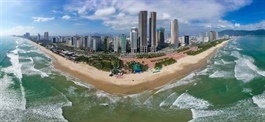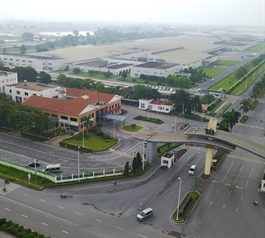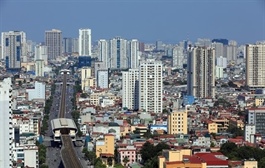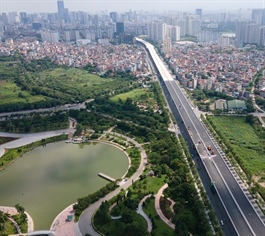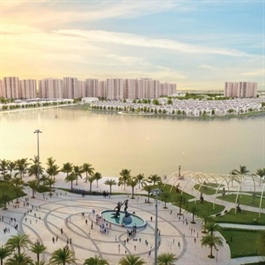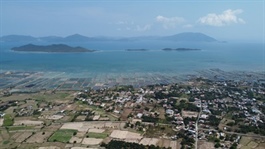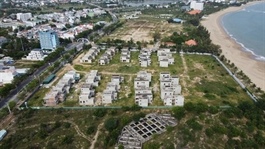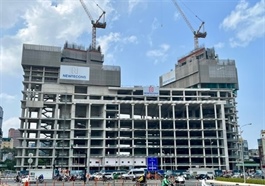Hospitality and real estate sectors strive for sustainable growth
Hospitality and real estate sectors strive for sustainable growth
Vietnam’s premier hospitality conference Meet The Experts (MTE) took place on March 26 focussing on “Regenerative Real Estate” welcomed nearly 1,000 real estate and hospitality professionals industry.

The event was hosted by WeHub, in collaboration with Savills Hotels and KOHLER, and in partnership with Life Fitness and more than 30 other industry-leading partners.
MTE is a bi-annual conference that provides a valuable platform for investors, hotel owners, management companies, design firms, and consultancies to stay updated on market information and trends, and brings together local and regional investors to invigorate hospitality real estate.
Last year, hospitality in many countries seemed to have recovered, with 85 per cent of global markets reporting higher Revenue Per Available Room (RevPar)than in 2019. However, Asia-Pacific markets continue to trail, with tourist arrivals still 35 per cent lower than in 2019. Globally, tourist numbers are only 12 per cent lower compared to 2019.
In Southeast Asia, Singapore leads with improving daily rates and international tourist numbers. By contrast, Vietnam is recovering slowly, with RevPar 20 per cent lower than 2019 levels, primarily due to low occupancy.
According to Mauro Gasparotti, director of Savills Hotels and MTE founder, cities like Ho Chi Minh and Hanoi are recovering faster than beach destinations, with their Average Daily Rate closely approaching 2019 levels.
“Ho Chi Minh City has shown faster occupancy recovery than others, but beach destinations are slowly regaining momentum. Danang has recovered well thanks to a strong rebound in South Korean tourists. The city welcomes approximately 25 flights a day from major South Korean cities. This accounts for over half of the total international flights arriving in Danang, while Nha Trang and Cam Ranh continue to struggle to fill rooms due to their historical reliance on Chinese travellers,” said Gasparotti.
"Although Vietnam has undeniable potential to be one of the premier global destinations, important improvements are needed," he continued.
"This year is anticipated to be the year of tourism in Southeast Asia, with the return of Chinese tourists in a big way. In addition to this, the Indian market is expected to become a driving force for tourism in the next few years, and Vietnam will have a good chance of capturing that market as well," Mauro added.
At MTE, senior representatives from Accor Hotels Group, IHG Hotels & Resorts, Vinpearl, Sovico Hospitality Group, TIA Wellness Resort, SonKim Land, Indochina Capital, and VinHMS delved into where the focus of Vietnam’s tourism should be – whether on international demand or the burgeoning local market. International demand brings in higher revenues per visitor, but may be subject to external factors such as global economic conditions and travel restrictions.
On the other hand, the local market provides a steady stream of visitors, often more resilient to global economic fluctuations, but may not generate the same revenue per visitor.
The discussion raised the importance of finding a balance between these two factors, and also emphasised the need for flexibility in marketing strategies, adjusting to the changing landscape of travel patterns post-pandemic.
Major hotel brands have expanded in Vietnam, as numbers rose from less than 50 branded hotels in 2013 to nearly 200 today. Speakers discussed the competitive advantages brands deliver, but also the perks independent properties hold.
According to Gasparotti, depending on the owner’s vision and strategy, independent or branded strategies can be beneficial.
“Operating an independent property gives an owner a sense of autonomy. On another note, effective cooperation between developers and hotel operators can be highly beneficial when facilitated and executed properly,” he said.
"Brands offer valuable expertise," continued Gasparotti, "Along with a strong reputation, access to extensive marketing, and distribution networks, among other benefits."
“They also come with specific requirements that must be met, thereby pushing developers towards higher quality standards, which is good for the market but also more costly. Since this partnership typically extends over the long term, developers should thoroughly understand their business model and expectations before engaging with hotel management companies. This understanding ensures a smoother collaboration and maximises the potential benefits for all parties,” he added.
Environmental, social, and governance was a key topic at MTE, along with sustainability, with speakers from Six Senses and Seibu Prince Hotel Worldwide Inc. presenting keynote speeches on achieving zero waste in ultra-luxury resort operations.
Representatives from Eurocham, and Greenview also shared key elements for embracing regenerative real estate, the future of green buildings in Vietnam and how to integrate and explore business opportunities arising from wellness and sustainability factors.
Senior professionals from Savills, Mapletree, Kepple Ltd., Kohler, Lodgis Hospitality, and Filmore Development shared their insights on real estate dynamics, how they perceived bottlenecks, and proposed initiatives to support market recovery.
There was an exploration of Ho Chi Minh City’s readiness for urban branded residences, sparking a debate on the city's infrastructure and potential for such developments.
Looking ahead, travellers will prioritise experiences that resonate with their values. Projects that can communicate their dedication to sustainability, wellness, and authenticity will gain a competitive edge.
With the growing emphasis on integrating sustainable principles into built environments, Ishan Kala, general manager of Kohler, Vietnam and Philippines, added that it was increasingly vital for manufacturers to collaborate more comprehensively with developers, operators, and architects.
“Kohler provides valuable insights into designing environmentally friendly products that assist customers in reducing their environmental impact through water stewardship and sustainable operations,” he said.







